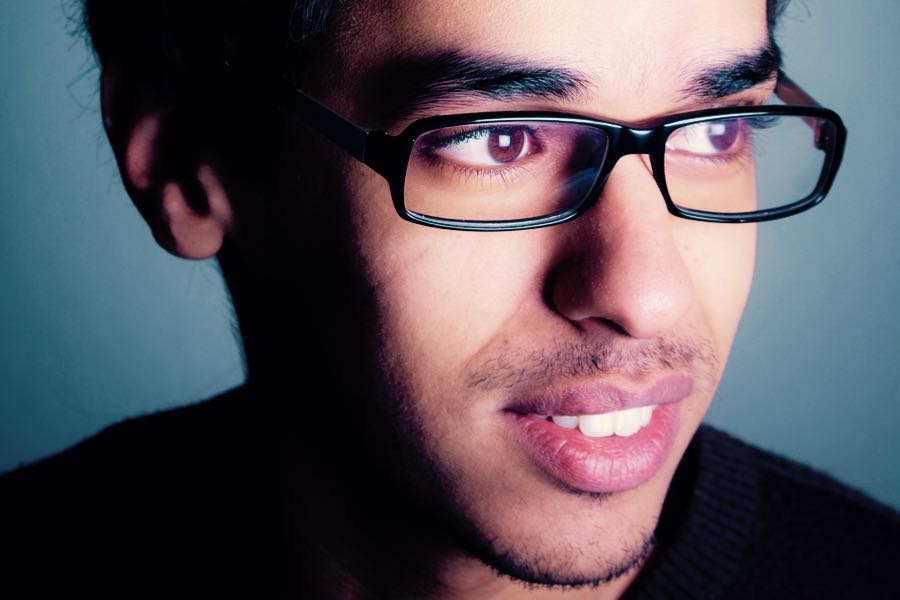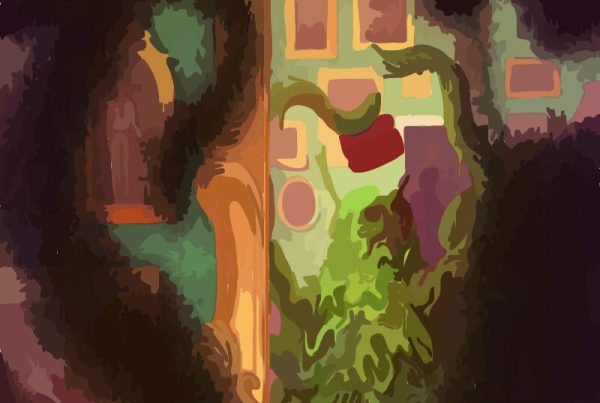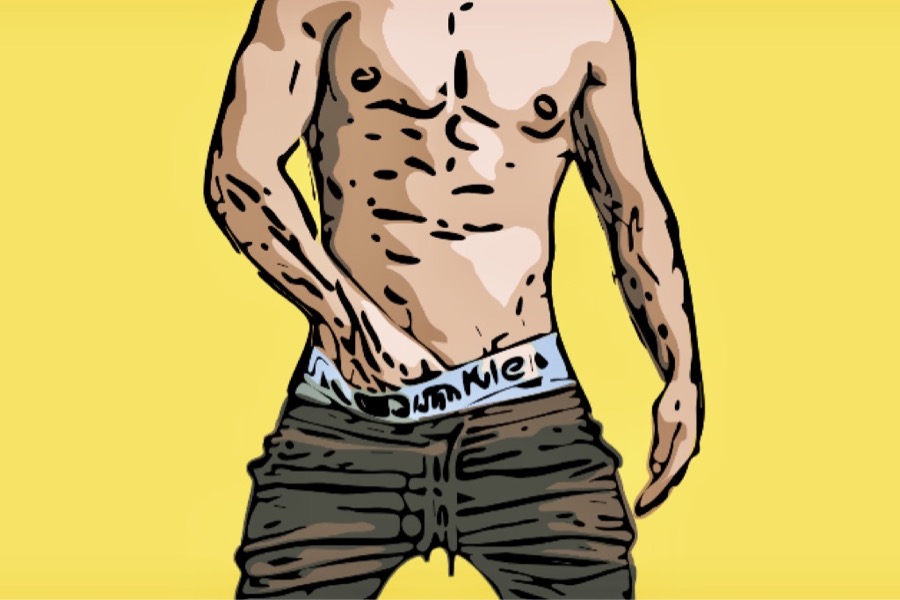Someone acclaims Hicham Tahir, someone else attacks him: this young Moroccan writer, 24 years old, has recently published his first personal collection of short stories, “Jaabouq” (Casa Express 2013, 128 pages), but he isn’t a novice. When he was only 19 years old, Hicham published a tale, “Happiness,” in the collective work “Letters to a young Moroccan” (“Lettres à un jeune Marocain”, Editions du Seuil 2009, 216 pages), coordinated by Abdellah Taïa and published in France by Edition de Seuil, one of the best and more prestigious publishers. After this, his short story “Do not say anything” was included in the collection “Jean Genet, a Moroccan saint” (“Jean Genet, un Saint Marocain”, Libr Colonnes 2010, 264 pages), which gets together texts by Tahar Ben Jelloun, Abdellah Taïa, René de Ceccatty and other talented authors. Il grande colibrì interviewed him.
After your contributions to collections signed by important authors, you are already famous as you begin your career as a novelist…
When I stand back, I think to these last five years. It’s a dream. I’ve always loved to write, it was the only way I had to express what I couldn’t say, especially to other people. But only after the publication of my novel in “Letters to a young Moroccan” the idea of working on my own works seemed possible: to be published was more a certainty that a childish dream.
Do you feel yourself as a “predestined?”
I don’t know… I’m sure of only one thing: I need to write, even without publication. This is my own therapy.
Your book, “Jaabouq,” is a collection of short stories that create a portrait of Morocco, a country “blessed by its damnation, damned by its beauty”…
“Jaabouq” talks about the Morocco that lived in me. Its faces, its repression, its schizophrenia, its love and its beauty: all these things are part of it, as it is part of me. The goal wasn’t to give voice to the “misunderstood” or to the “individuals,” but it was to say to myself: “Hey, remember that in your Morocco there is always something worse.”
In the book, there is a lot of characters. In the first, very intimate part there are the letters, like “Letter to a father,” that is a kind of mourning words over the tangled relationship with my father. “Mama Africa” is the story of a sub-Saharan woman who considers Europe as an Eldorado and who hadn’t any gift by life. “Assim” is a homosexual boy from a disadvantaged district: he doesn’t understand what is happening. However, he hasn’t too many questions: he just lives. “Jaabouq” addresses questions like rape, veil, homelessness, suicide. It talks about Moroccan individuals who do good and bad weather in this society. It talks about “ego” that is always swollen in a society as the Moroccan one.
You received a lot of praises and you’ve been honored with the “Love at first sight” award, from the jury of the “Prize of the gay novel 2013,” organized by the French Éditions du Frigo. Are you satisfied?
“Jaabouq” received the award, and the author. I wake up in the morning as Hicham Tahir the individual, not the author. So it’s hard for me to feel this award as mine. But it’s a honor to have a so beautiful appreciation already on my debut. I hope it will help people understanding that you can be yourself, whatever is the background you can come from, and receive such gratification, no matter the field where you operate.
Two years ago, you organized on your blog (Hicham Tahir) a series of “Letters to a homosexual,” written by your friends and by yourself. Among other things, you wrote: “You haven’t to shout it from the roofs,” but also: “Homosexuals have always been part of our history, our culture, our heritage…”
“Letters to a homosexual” were inspired by “Letters to a young Moroccan.” The idea came to me when a young man had told me about the problems linked with his homosexuality, about his feeling of loneliness. I found it sad that, at the dawn of the 21st century, there are still people who feel lonely in their situation, in the situation where society wanted to keep them.
Do you think Morocco have to change its anti-LGBT law or do you think that a tolerant society is enough for a person to live peacefully his homosexuality?
Thinking that Morocco has to change its law is like giving him reason about considering homosexuality a problem. No, I don’t think it has to change, because such a law would never have existed. It’s silly! We refuse to see the reality: homosexuality has always existed among us and these laws can’t abolish or delete it.
However, before calling for the abolition of this law, the priority should be to educate young homosexuals to understand that they shouldn’t be afraid of what they are. Today it’s urgent for Moroccan, Imazighen [Berber; TN], Arab, international young homosexuals (no matter their origins) to become aware of what they are, to understand that they don’t do anything wrong, to stop considering a problem how society judges who sleeps with whom, who loves whom.
According to many people, being gay and Muslim at the same time is still (or is now more than ever) a taboo, even if inclusive mosques, such the Parisian one, are created more and more frequently. Do you think Islam could be a religion that respects all forms of love?
I am not an imam, I can’t preach and teach lessons on Islam and Quran. All I know is that, if from a religious point of view (and again, we are talking about Koranic interpretation…) homosexuality is a sin, we have to know that everyone commits sins, throughout the whole course of the day. We have to understand that Allah (God, Yahweh, no matter the name) isn’t a fool. In a hadith of the prophet, it’s clearly marked: “The pens have been lifted and the pages have dried.” God knows our destiny and all believers could agree that he doesn’t make errors. So, either God created homosexuals to punish them or people have misinterpreted his words. And I prefer to believe that God is full of love and that human beings are mistaken, rather than thinking he created homosexuals to send them to hell only for fun.
translation by Michele and Pier
©2013 Il Grande Colibrì





Muito bom o blog!!